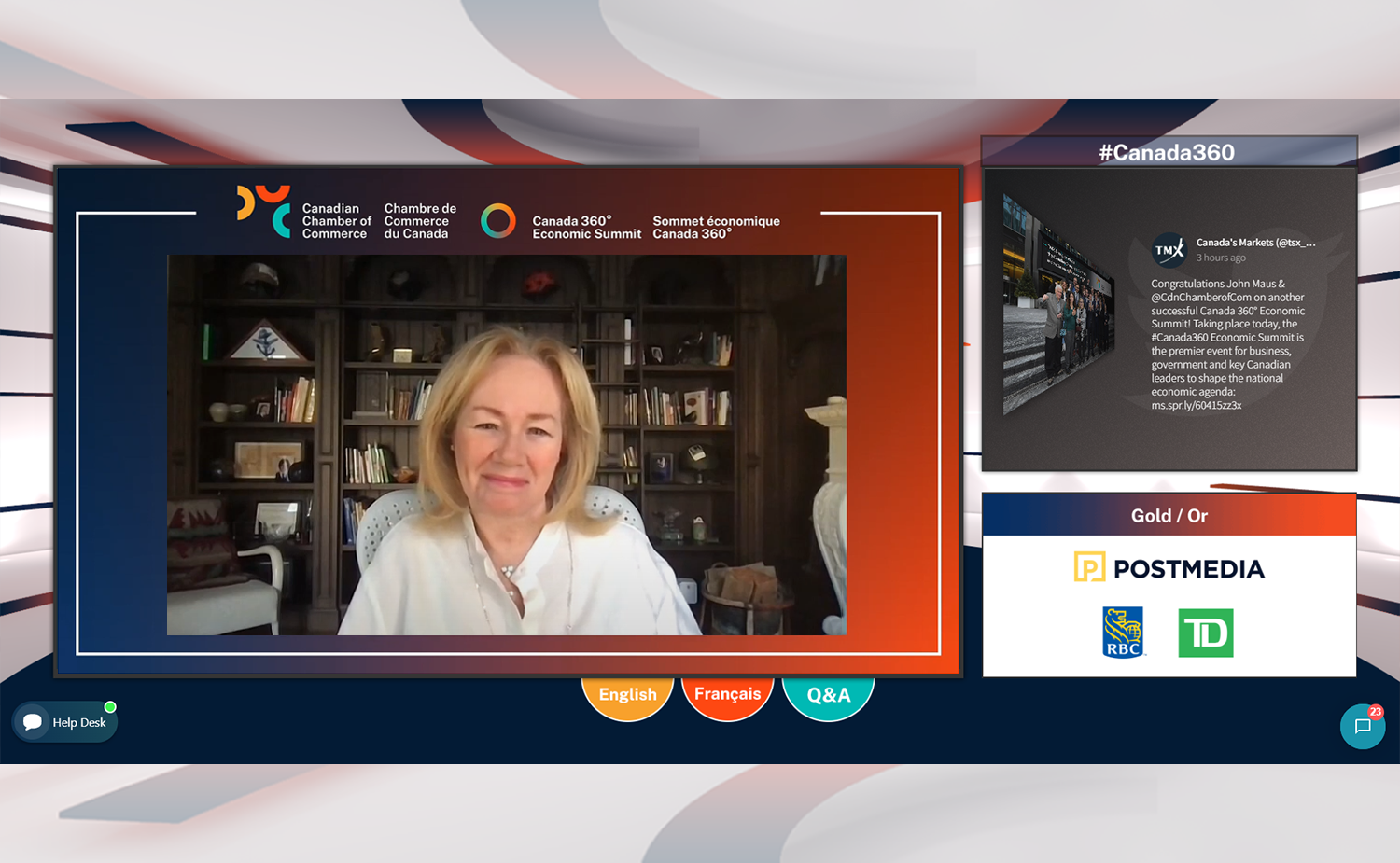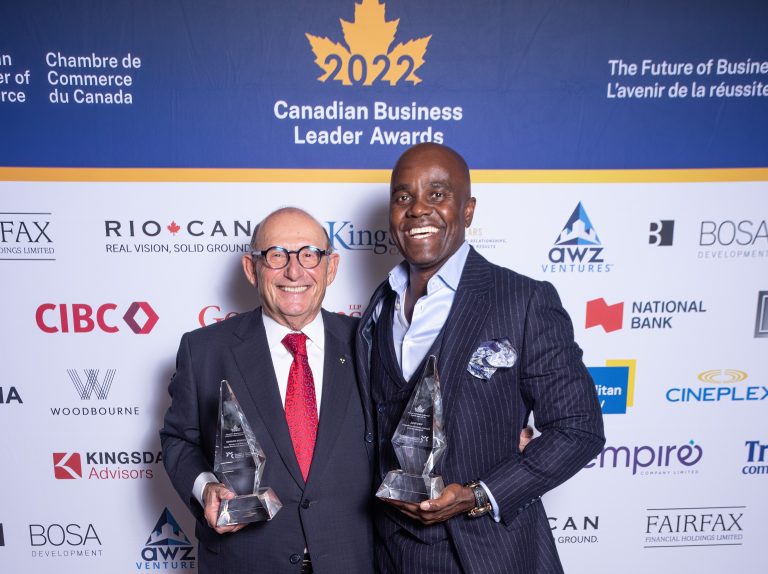Blog /
Key Takeaways from this Year’s Canada 360° Economic Summit
Key Takeaways from this Year’s Canada 360° Economic Summit
February 8 marked our fourth annual Canada 360° economic summit – this year’s focus was on seizing opportunities in disruptive times, from soaring inflation and a changing labour market to Russia’s illegal invasion of Ukraine and extreme climate events.

February 8 marked our fourth annual Canada 360° economic summit – this year’s focus was on seizing opportunities in disruptive times, from soaring inflation and a changing labour market to Russia’s illegal invasion of Ukraine and extreme climate events.
Did you miss the event or want to re-watch certain sessions? We’ve got you covered.
Want to skim some of the day’s biggest lessons and takeaways? Read on!
Is the economy as bad as it seems?
Short answer: While it’s certainly not great, it’s also not hopeless according to our Business Data Lab’s Chief Economist Stephen Tapp in his overview of Canada’s economic landscape.
Key Takeaways
- Canadian businesses and households are facing strong headwinds in 2023.
- The Bank of Canada’s interest rate hikes will take some time to have the cooling effect on the Canadian economy that the Bank is looking for – just like turning a thermostat up or down, there’s a lag between when the thermostat is set and when the temperature in the room matches that number.
- Interest rate hikes in countries like Canada, the United States, the European Union and China could mean recession risks – the central banks need to be careful they don’t cool their economies off too much.
- Inflation has peaked and is now slowing, but it will take some time for Canada to get back to its target inflation rate (between 1-3%).
- The recession that was originally predicted hasn’t materialized yet.
I’m seeing lots of resilience and some optimism …the economy is bending but not yet breaking.
Stephen Tapp, Chief Economist, Canadian Chamber of Commerce
Tell us how Canadians REALLY feel
Nik Nanos, Chief Data Scientist and Founder of Nanos Research, has a better idea than most when it comes to how Canadians are feeling about everything from housing costs and the job market to Canadian political parties and the future of the economy.
Key Takeaways
- Canadians are 3x more likely to say they are worse off financially today than they were one year ago – Canadians aged 50-59 are feeling especially pessimistic as they worry about the stock market’s effect on their retirement savings and try to pay off debt before retirement.
- Canadians under 30 are more likely to be nervous about their job security – more nervous than we’ve seen in the past 10-15 years. They’re having a hard time breaking into their careers while also worrying about trying to pay the bills and save for a downpayment.
- Canadians are VERY unimpressed with the state of the relationship between the federal and provincial governments.
- Generally, Canadians don’t think Canada’s reputation on the international stage is good.
- Canadians are preparing for a recession – this can sometimes lead to a self-fulfilling prophecy. If people expect the worst, they’re less likely to spend.
Inflation and interest rates. The double whammy where Canadians are just trying to figure out how to pay the bills.
Nik Nanos, Chief Data Scientist & Founder, Nanos Research
Canada’s three “F” words and why everyone should care about them
Food, fuel and fertilizer – three of the world’s hottest commodities and Canada has them in spades. The problem is we tend to struggle getting them out the door to the countries that want and need them.
Key Takeaways
- There is an economic, environmental and humanitarian imperative for Canada to meet the increasing global need for food, fuel and fertilizer – if not, then countries are going to be forced to rely on those countries that are doing it less sustainably and responsibly.
- Canada is able to punch above its weight in all three industries, but without the right investments and national strategies, we’re at risk of missing out to other global players like the United States.
- These sectors need tailored approaches to de-risk investment and innovation – some options include changes to the regulatory environment and more incentivizing policies.
- Canada needs a timelier review process – getting to yes, or no, sooner are key to unlocking investment.
- Well-maintained, proactive supply chains are key to growing the food, fuel and fertilizer sectors.
The carrot approach is likely the one that is going to drive the level of investment we need if we want to grow these sectors and position Canada as a heavy weight in the industry around the world.
Karen Proud, President and CEO, Fertilizer Canada
How to find and keep employees in a tight labour market
Businesses across every industry in every corner of the country are being impacted by a tight labour market thanks to trends including record retirement numbers and shifts in attitudes towards work.
Key Takeaways
- Canada is experiencing a fundamental, long-term shift in employment preference, and businesses need to be attuned to this and adapt as necessary.
- People-first culture and meaningful inclusion practices are non-negotiables for a talent-retention strategy.
- Employees are looking for opportunities to grow and learn new skills – creating a skills and competency framework for your business can pinpoint skills gaps and identify those opportunities to upskill and reskill employees.
- Businesses, governments and academic institutions need to get better at working together to identify the skills needed for the economy of the future and help people be better prepared for the labour market.
- Every single employer needs to be thinking about immigration and how they can successfully attract new talent coming into Canada.
If you agree that employees are acting more like consumers than ever before when they’re looking at jobs – when’s the last time we looked at the jobs that we’re offering in the market and looked at them as products and asked whether people want to buy them anymore?
Stephen Harrington, Partner, Human Capital, Deloitte
What do we need to achieve our net-zero goals?
Canada’s energy sector plays a critical role in the success of Canada’s net-zero ambition but there are a number of challenges stalling their momentum towards decarbonization.
- Decarbonizing traditional energy is key to reaching net-zero goals, but it won’t happen overnight and Canada needs to recognize the incremental steps along the way. We can’t completely erode the platform we’re standing on until we’ve built the platform we want to move towards.
- Net-zero policy in Canada has been based on good intentions but is confusing for businesses, especially in the energy sector – this policy uncertainty is causing business momentum towards decarbonization to stall.
- There are different decarbonization strategies that work best for different businesses in the energy sector – there needs to be a policy framework and incentives that allow for this variety of approaches. Incentivizing only one approach hinders the overall progress towards net-zero.
- Canada needs to look at its net-zero goals through the lens of a global energy ecosystem – part of the solution is tackling the global emissions problem, as opposed to trying to solve a “Canadian” issue.
- A national low-carbon export strategy has been missing from our net-zero equation.
At the end of the day, emissions don’t have borders. Why aren’t we tackling the lowest hanging fruit, in our own operations in Canada and globally? We just need to get out of our own way a little bit.
Leah Turner, Director, Public Affairs, Tourmaline Oil Corporation
Entrepreneurialism is key to the evolution of Canada’s economy
Canadian business legend Arlene Dickinson joined us for our closing keynote where she covered everything from leadership and what it takes to succeed as an entrepreneur to the challenges facing Canadian entrepreneurs and their impacts on the economy.
- Entrepreneurs need to be constantly asking themselves how they can do things differently, especially when it comes to leadership.
- Great leaders are transparent, integrate themselves with their team and ensure people feel like they are valued and that the work they are doing together matters.
- Canada is very good at helping fund start-ups and later-stage companies but falls short when it comes to providing successful financial solutions to middle-stage companies that are focusing on growth and trying to scale.
- When it comes to financing entrepreneurs, many financial institutions are looking to check boxes as it relates to who they will support, and not enough of them are willing to back the person – and at the end of the day, while ideas and proposals are important, it is about backing the person.
- If we look at successful businesses in any sector, they are backed by entrepreneurs – without entrepreneurism, Canada’s economy will not evolve. We need a robust financial ecosystem that supports more entrepreneurs and encourages risk in a way that allows the visions and dreams of Canadian entrepreneurs to become a reality.
You were good. You were effective at a time when you could rely on traditional methods of leadership. But you need to evolve. And that means you need to be constantly learning and understanding what your team needs, what the market is expecting and how you can show up.
Arlene Dickinson, “Dragon”, CBC’s Dragon’s Den, General Partner, District Ventures Capital, Bestselling Author
Like what you see here? Head over to our YouTube channel to watch all the day’s panels, keynotes and other great one-on-one conversations and presentations.
Related News

Employee Education is a Critical Defence Against Cyber Attacks

How Your Organization Can Quantify and Reduce Your Cyber Risk




